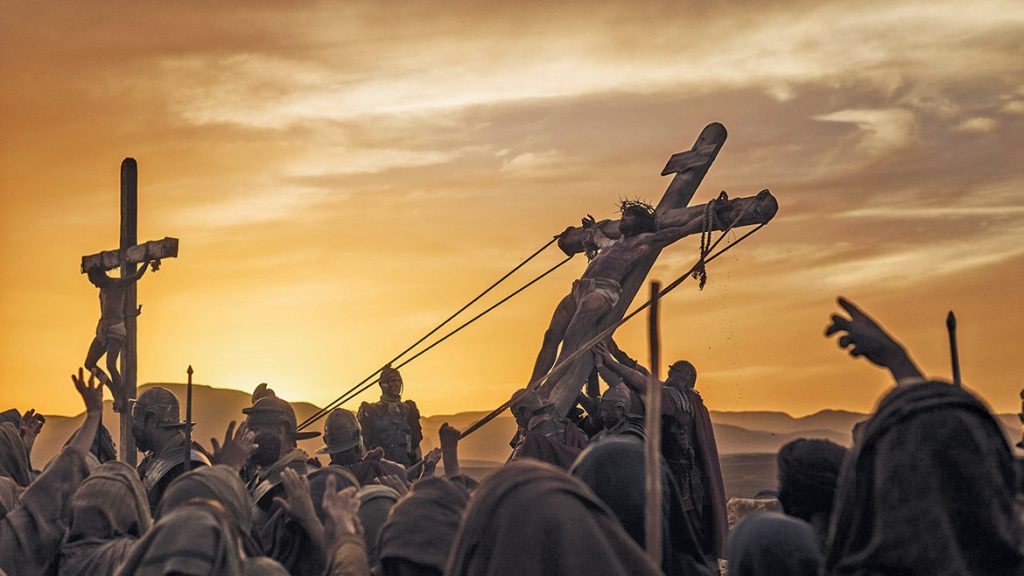The pagan philosopher Epictetus was an eyewitness to the rise of Christianity. He lived in the first century, and he watched in amazement as the Church grew.
He was no Christian. Like most pagan intellectuals of his generation, he probably considered Christianity a “superstition.”
Yet Christians made a deep impression on him, because their “superstition” seemed to give them virtues that the greatest philosophers found unattainable. Virtues like courage.
“Some people come to fearlessness,” he said, “by way of madness. But the Galileans, by way of habit.”
This was not a case of Christians tooting their own horn. Epictetus was a pagan — with the anti-Christian attitude that was typical of his time — but he couldn’t help but admire what he saw in the Church.
From Epictetus we know that Christians, from the very first generation, made it a habit to face down their fears and overcome them.
The martyrs weren’t made in a day. They didn’t learn fearlessness in five easy lessons. They learned it by meditating regularly on the life and teachings of Jesus. They gained it by sharing habitually in the life of Jesus. They got it by grace, but they kept it through practice.
Meditating on the life of Jesus, they learned confidence. Jesus was supremely confident because he lived in communion with the Father. He said: “The Father and I are one.”
He called us, moreover, to share that communion. He prayed that we should be united among ourselves and united to Jesus and the Father (John 17:21).
And then, moments later, he established a way for us to enjoy that communion habitually — ever Sunday and holy day at least, and even every day if we want. He established the Holy Eucharist as an ordinary means of grace — an ordinary way to gain the strength we need to overcome our fear.
“Do not be afraid,” Jesus said, “just have faith.” It can sound to us like a pat answer. It can sound like the most insensitive dismissal of our feelings. But Jesus himself knew aversion and terror. In his agony in the garden, he repeatedly begged his Father to let the cup of suffering pass from him.
We can join him in that prayer, but we must also be prepared to receive the answer Jesus received. It was the Father’s will that our Lord and brother should pass through suffering to glory.
And that may be his will for us as well. All our fears have suffering as their object. Fear is a natural human aversion to pain. Jesus felt fear, just as we do, but he did not let fear keep him from living his life and accomplishing his mission. He leaned into his communion with the Father; and, in doing so, he taught us how we can do it, too.
But, again, it’s not the matter of a moment. We have to make it a habit.
Jesus says to us: “If anyone wishes to come after me, he must deny himself and take up his cross daily and follow me.”
Daily, he said. Daily we need to take up our cross.
What is that cross? Well, sometimes it’s something we haven’t chosen — a circumstance thrust upon us, from which there’s no escape. Every time we feel the fear of that cross, we can pray to God, unite ourselves to Jesus, and actively accept the Father’s will. We can make it a habit.
Since fear is a natural response, we can also begin to overcome it by striving to overcome other natural drives. We can skip one meal on certain days of the week. (The traditional day is Friday, the day of Jesus’ suffering.) In doing this, we’ll gain mastery of our appetites, which can otherwise run amok.
We can exercise, too, even though we find it boring and hard. We can stick to the diet our doctor prescribed, even though we find it distasteful. We can do these things daily — and we can take them up as crosses, offering them up, in union with Christ, for the sake of the people we love most (see Colossians 1:24). Slowly, over time, we’ll overcome our fear of suffering, because we’ll have taught ourselves to overcome it in small doses, one day at a time, by way of habit.
From one day to the next we probably won’t notice a difference in the level of our fears. But from one year to the next we probably will. We will, in the words of St. Paul, be “more than conquerors.”

